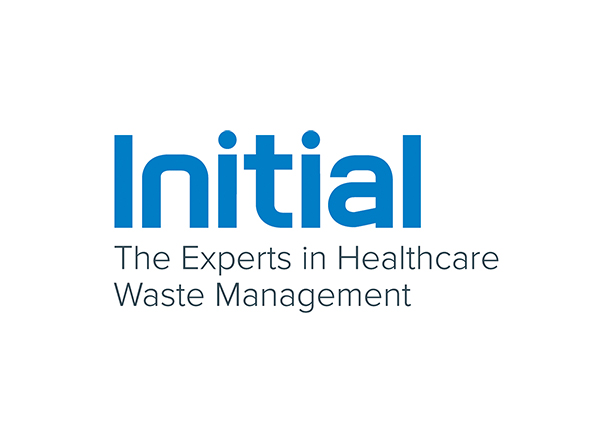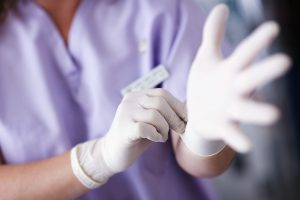Protect your hands, protect your health – Rebecca Waters Initial Medical
Featured Products Promotional FeaturesPosted by: Dental Design 3rd January 2020

 Our hands have to go through a lot on a daily basis. Just think, even outside the workplace we use our hands for everything. We subject them to hair products and washing up liquid. We use them to open doors and hold onto poles on public transport – basically, they have to be tough to withstand the barrage of pathogens and chemicals which assault them on a regular basis.
Our hands have to go through a lot on a daily basis. Just think, even outside the workplace we use our hands for everything. We subject them to hair products and washing up liquid. We use them to open doors and hold onto poles on public transport – basically, they have to be tough to withstand the barrage of pathogens and chemicals which assault them on a regular basis.
In a dental practice, hands are exposed to even more threats. This means that hand protection is more important than ever, especially if you want to keep yourself and others healthy.
The dangers to health
It’s understandable that the primary protective use of gloves in the dental workplace is to guard against pathogens. When performing dental treatments, it’s not unusual for hands to be exposed to fluids such as saliva and blood, and both of these can carry dangerous diseases.
The biggest threats are serious viral infections such as HIV, Hepatitis B and C. HIV, though manageable, is not treatable as of yet, and seriously impacts the immune system of any individual who contracts it.[i] Both Hepatitis B and C can cause liver troubles, including severe damage to the liver which can even be fatal.[ii],[iii]
Other diseases that can be transmitted through these means are also concerning, and it’s not unusual for people to contract influenza and other common diseases through contact with bodily fluids from infected others.
Gloves help to protect against these threats in two different ways. Firstly, wearing gloves prevents these pathogens coming into contact with the skin, making it impossible for them to infiltrate our natural defences through any small cuts on our hands. Secondly, when worn and properly disposed of, gloves prevent pathogens from moving from surface to surface. This in turn helps contain the potential spread of disease.
Needlestick injuries
Another thing dental professionals need to be aware of are needlestick injuries. These present the same threats as blood spray, with the added worry that if a needlestick injury occurs pathogens may directly enter the bloodstream through the wound, and therefore infection is more likely. Needlestick injuries are a common occurrence, and it is thought that thousands of people still experience these injuries every year.[iv] Protecting against these injuries understandably remains a primary concern.
One was to make sure you put safety first is by choosing the InSafe Sharps Safety System from Initial Medical. A unique sharps and syringe disposal box, the system ensures that needles are never exposed apart from when actually administering the injection, removing the risk of needlestick injuries altogether. The system is completely compliant with UK legislation and can even be dismantled to ensure effective sterilisation after use.
Cleaning products
The chemicals in cleaning products can be very abrasive to our skin. In dental practices you have to use chemicals which can kill pathogens effectively, but the power to destroy bacteria, viruses and other threats also means that these products can damage skin too.
Chemical burns, excessive dryness, eczema and other nasty conditions can all be consequences of using cleaning products without hand protection, and in some cases these injuries can be serious and take a long time to heal. These injuries tend to be caused because chemicals (such as ammonia) strip away the natural oils on our hands, leaving the skin weak and subject to drying out or to damage caused by chemical contact.[v]
Gloves protect against these threats as they form a physical barrier between our skin and the chemicals we are using. As long as gloves are not made from any absorbent material, you can completely bypass the threat of chemical burns and other adverse effects.
Allergic reactions
Choosing the right gloves for the individual tasks in your practice isn’t always straight forward. Many people can form allergies to glove materials, especially if these are worn on a regular basis. Latex allergies are particularly common among healthcare workers, and one study suggested that as many as 21.8% of those who wear these gloves regularly develop an allergic reaction to the material over time.[vi]
Other types of gloves can cause allergies too, and those who suffer from asthma may have adverse reactions to powdered gloves – another common type used in dentistry.
As such, it’s important to evaluate the needs of all of your staff to ensure that you buy gloves that protect them as much as possible, and which won’t have any detrimental effects on their skin/health.
Initial Medical has a wide range of gloves available to suit every need. Offering a diverse selection of materials, sizes and other options, you can easily find gloves suitable for every task which can also protect all staff from harm.
For further information please visit www.initial.co.uk/medical or Tel: 0870 850 4045
References
[i] NHS. HIV and AIDS. Link: https://www.nhs.uk/conditions/hiv-and-aids/ [Last accessed August 19].
[ii] NHS. Hepatitis C. Link: https://www.nhs.uk/conditions/hepatitis-c/ [Last accessed August 19].
[iii] NHS. Hepatitis B. Link: https://www.nhs.uk/conditions/hepatitis-b/ [Last accessed August 19].
[iv] King, K., Strony, R. Needlestick. [Updated 2019 Jun 4]. In: StatPearls [Internet]. Treasure Island (FL): StatPearls Publishing; 2019 Jan-. Available from: https://www.ncbi.nlm.nih.gov/books/NBK493147/
[v] Cnet. 3 Reasons You Should Always Wear Gloves While Cleaning. Link: https://www.cnet.com/how-to/why-you-should-always-wear-gloves-while-cleaning/ [Last accessed August 19].
[vi] Filon, F., Radman, G. Latex Allergy: A Follow Up of 1040 Healthcare Workers. Occup Environ Med. 2006 Feb; 63(2): 121–125.
No Comments
No comments yet.
Sorry, the comment form is closed at this time.



